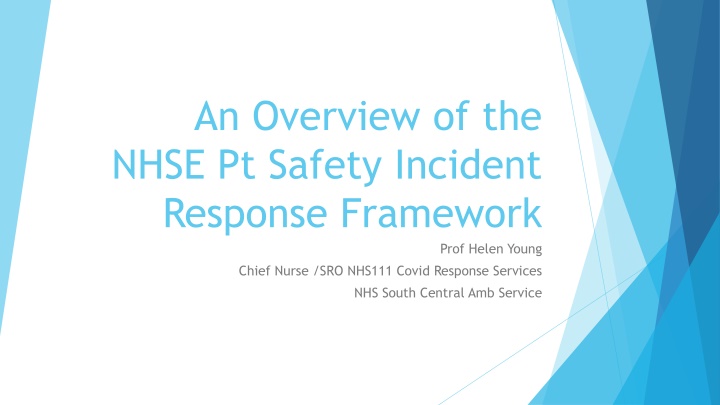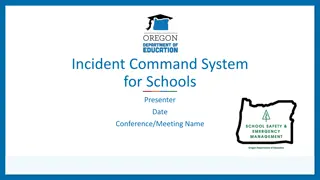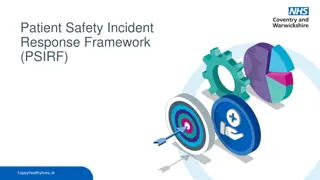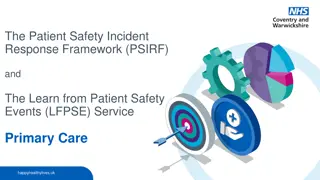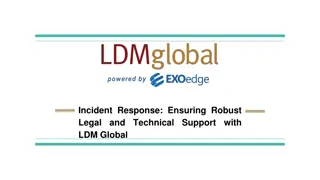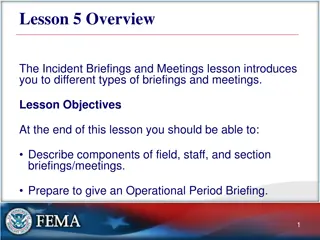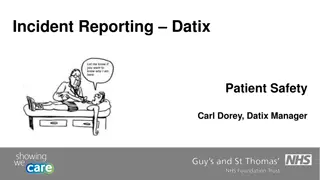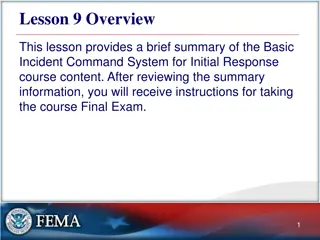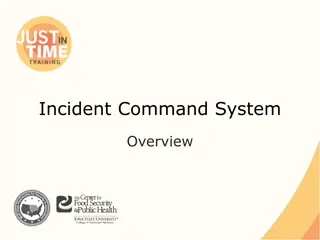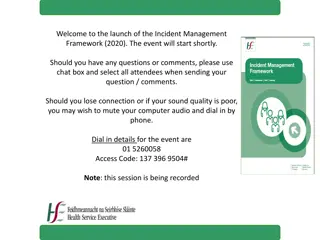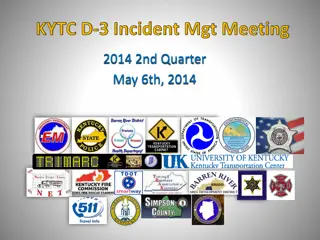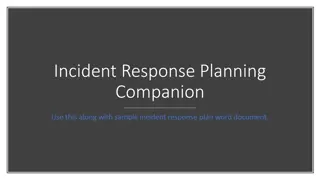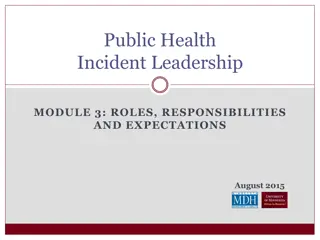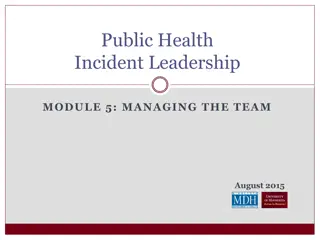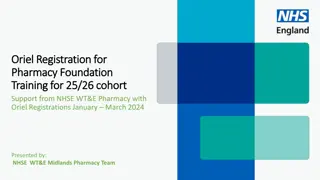NHSE Patient Safety Incident Response Framework Overview
The NHSE Patient Safety Incident Response Framework (PSIRF) is a new system designed to shift from reactive to proactive incident investigation in patient safety. It promotes a just culture approach, prioritizes quality investigations, and emphasizes the engagement and support of patients, families, and staff. The framework introduces changes in investigation practices, governance, terminology, and response planning for a more effective and comprehensive approach to patient safety incidents.
Download Presentation

Please find below an Image/Link to download the presentation.
The content on the website is provided AS IS for your information and personal use only. It may not be sold, licensed, or shared on other websites without obtaining consent from the author.If you encounter any issues during the download, it is possible that the publisher has removed the file from their server.
You are allowed to download the files provided on this website for personal or commercial use, subject to the condition that they are used lawfully. All files are the property of their respective owners.
The content on the website is provided AS IS for your information and personal use only. It may not be sold, licensed, or shared on other websites without obtaining consent from the author.
E N D
Presentation Transcript
An Overview of the NHSE Pt Safety Incident Response Framework Prof Helen Young Chief Nurse /SRO NHS111 Covid Response Services NHS South Central Amb Service
Content What it is? What are the differences between old and new systems? How to Prepare? When will it be implemented?
What is the PSIRF Part of the National Safety Strategy Patient Safety Incident Response Framework NHSE based and available to see with resources on NHSE website
What is the PSIRF? Part of the national NHSE Patient Safety Strategy The PSIRF will replace the Serious Incident Framework (SIF) Broader scope:- PSIRF moves away from reactive and hard-to-define thresholds for Serious Incident investigation and moves towards a proactive approach to learning from incidents. Promotes a range of proportionate safety management responses. Investigation approach: safety investigation is now tightly defined. Quality of investigation is the priority with the selection of incidents for safety investigation based on opportunity for learning and need to cover the range of incident outcomes. Experience for those affected critical - expectations are clearly set for informing, engaging and supporting patients, families, carers and staff involved in patient safety incidents and investigations. Orgs must implement Just Culture approach where staff involved in incidents are treated with equity and fairness.
Patient Safety Investigations in future: Investigator must have expertise, experience, time and authority. PSIRF clarifies investigations must be led by those trained and experienced in patient safety incident investigation (PSII), with the authority to act autonomously and with dedicated time and resource. Investigation timeframe are more flexible and set in consultation with the patient and/or family. They should average three months and never exceed six. Terminology - systems-based PSII replaces the term root cause analysis (RCA). Governance and oversight is strengthened, with commissioners and local system leaders assuring plans and co-ordinating investigations spanning multiple settings. Provider boards now sign off PSII quality and safety improvements.
Differences between old and new systems. Moves away from reactive and hard-to-define thresholds for Serious Incident investigation and towards a proactive approach to safety and learning investigations. Selects incidents for PSII based on the opportunity for learning. Selects PSIIs for learning to ensure the wide range of outcome severities is covered. Introduces local provider patient safety incident response plans (PSIRPs) to be agreed with commissioners. Highlights alternative, proportionate and effective responses to incidents (eg case note review, timeline mapping, being open conversations, after action review, audit, to better describe common review activities and address queries. Prioritises the quality of PSII to support and focus on safety improvement. Supports more balanced allocation of resources to develop improvements and equity of care from PSII findings
Differences between old and new systems. PSII to be led by those with PSII training experience of conducting quality PSIIs Authority to act autonomously Dedicated time and resource to conduct a good quality PSII. PSII methodology Systems-based PSII or a systems approach to investigation replaces the term root cause analysis (RCA). PSII relates only to comprehensive and independent investigations. Replaces previously termed concise investigations with techniques such as audits and reviews. Discontinues use of the 5 Whys technique as it is inadequate when used literally, in a linear fashion or as the sole analysis technique. Promotes analysis techniques that facilitate a systems approach to identification of the interconnected contributory, human and causal factors. Moves from over-reliance on documentation and statements to increased use of listening, interviews, discussion and observation. Identifies system strengths as well as problems (together with their associated mitigating and contributory factors)
How to Prepare the introductory model is out for review and used by Early Adopters. It has 3 parts Prepare for Incidents (4 steps) 1. Establish behaviours or reporting, learning and a culture of quality improvement 2. Develop your Strategic Safety Plan based on your organisation incident history Design your system to support the needs of those affected by the incidents you are seeing 4. Prepare, test and retest your response to incidents to identify and improve on any weaknesses
How to Prepare the introductory model is out for review and used by Early Adopters. It has 3 parts Respond to Incidents (4 steps) 1.Take immediate remedial action when the need is identified 2. Select and undertake investigations into the appropriate incidents based of your strategic safety plan 3. Provide support for all those affected (staff and patients) 4. Develop, implement and monitor all improvements made using the QI cycle
How to Prepare the introductory model is out for review and used by Early Adopters. It has 3 parts Oversight of Incident Management Design your system wide governance and risk share arraignments with commissioners providers and partners Designate specific roles and ensure all appropriate experience and training of those involved
When? Early Adopters working with it now from each area/sector Delayed a little due to Covid Early 2022 all expected to start engaging so be ready!
Thank you Helen.young@scas.nhs.uk
